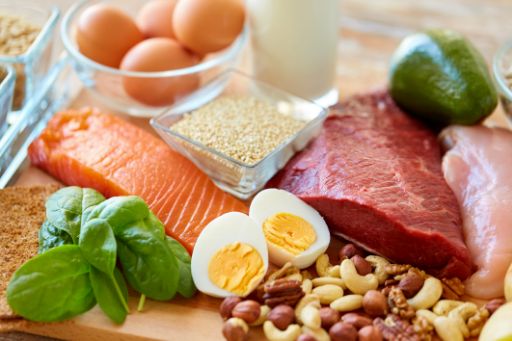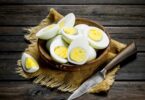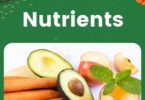As we age, our nutritional needs evolve as well. How we fuel our bodies has an enormous effect on overall wellness as we move into our senior years; this comprehensive guide addresses essential aspects of senior nutrition such as milk formulations and protein supplements as well as energy-boosting foods – and provides tips on creating a diet tailored specifically to you and your unique requirements.
Nutrition Milk for Elderly

What Makes It Different?
Nutrition Milk for Elderly refers to products tailored specifically for older adults’ nutritional requirements, with features and benefits unique to this category of ensure milk for elderly products such as:
Higher protein consumption to sustain muscle mass and strength; additional vitamins and minerals for immunity support, and lower lactose content that alleviates digestive discomfort
Enhance flavour and texture to increase palatability and appetite.
Nutrition Milk for Elderly products include Glucerna, Ensure, Maple Hill, Stonyfield Organic and Organic Valley; their ingredients may differ based on calories, fat, sugar and calcium content levels – it is therefore important to read labels thoroughly when selecting one that meets both personal preferences and health objectives.
Nutrition Milk for Elderly offers many advantages:
Improved Bone Health: Milk is an excellent source of calcium and vitamin D. These essential components support bone density maintenance and the prevention of osteoporosis.
Enhancing Cognitive Function: Milk can enhance seniors’ mental health in several ways. For instance, its nutrients may protect against brain damage and reduce inflammation within the brain while helping maintain healthy blood vessels, which contribute to optimal cognitive performance.
Reduced Risk of Chronic Diseases: Milk can help lower blood pressure, cholesterol levels, and inflammation – risk factors associated with cardiovascular disease, diabetes and various cancers.
Some recommendations for using Nutrition Milk for Elderly include:
Drink at least three servings of dairy products daily to meet your calcium and vitamin D requirements, opting for low-fat or fat-free options to limit saturated fat and calorie intake.
If you suffer from lactose intolerance or allergy, look for lactose- and dairy-free options such as soy or almond milk. If swallowing and chewing difficulties exist, choose liquid or powdered products which are effortless to consume.
If you have diabetes or kidney disease, always consult a healthcare professional or dietitian before drinking Nutrition Milk for Elderly products, as they may contain added sugars or proteins that could impact blood sugar or kidney functions.
Note: Please consult your healthcare provider before adding any new food or supplements to your diet, especially if you have allergies, medical conditions, or take medications.
Find the Best Protein Supplement for Seniors
Protein supplements provide additional protein to the diet through powders, shakes, bars or pills and can help seniors maintain or increase muscle mass, strength and function; treat or prevent age-related muscle loss; and protect against sarcopenia (age-related muscle wasting). However, not all protein supplements are created equal, and some factors must be considered when selecting one that will best meet their individual needs.

Consider these factors when selecting a protein supplement:
Type and Quality of Protein: There are various forms of protein, such as whey, casein, soy, pea, rice and hemp proteins; each variety possesses different amino acid profiles, digestibilities and bioavailabilities (how well your body utilizes them). Whey protein is one of the most sought-after and beneficial forms of protein for seniors, as it contains all nine essential amino acids and boasts a rapid absorption rate – all while being proven effective at supporting muscle growth and repair. Whey protein comes from grass-fed cows, which may provide more omega-3 fatty acids and antioxidants than grain-fed cows. Unfortunately, whey protein may not be suitable for vegans, vegetarians, lactose intolerance or dairy allergies. If this is the case for you, alternative protein sources, such as soy, pea, rice or hemp proteins, could provide similar health benefits as their whey counterpart. However, they may have lower bioavailability and digestibility than whey protein, so more may need to be consumed to achieve comparable results. Also, be wary of any product which contains fillers, additives or artificial ingredients, as these could compromise your health.
Protein Amount and Timing for Seniors: It is generally recommended that older adults consume an intake of 0.8 grams per kilogram of body weight daily; however, some studies indicate that increasing this to between 1.2-1.5 grams may provide more significant relief from sarcopenia symptoms and improve muscle function. Your protein consumption should also be evenly spread throughout the day to increase muscle protein synthesis more effectively than taking large doses at one time. Aim for 20 to 30 grams of protein at each meal or snack as a general guideline. Protein supplements can provide an efficient and quick source of protein when food sources don’t provide enough. A protein shake could be a breakfast replacement, post-workout snack, or bedtime drink to speed muscle recovery overnight.
Taste and Texture of Product: Taste and texture should also be taken into consideration when selecting a protein supplement, with some people preferring smooth and creamy textures over gritty or chalky ones and having different preferences for flavours such as chocolate, vanilla and strawberry being preferred by different people. Find one that meets both your personal preferences and those of others to ensure optimal consumption! Protein powder can even be mixed with milk, water juice, Yogurt, and fruit to create tasty smoothies or shakes to enjoy throughout your day!
Based on these criteria, I uncovered some of the top protein supplements for seniors from my online search:
Transparent Labs Grass-Fed Whey Protein: This product from grass-fed cows offers 28 grams of whey protein isolate per serving, using no artificial additives or sweeteners other than Stevia to provide a mildly sweet flavour. It is low in fat and carbs while rich in calcium and potassium. Also comes in flavours such as Chocolate Peanut Butter Cup.
Ritual Essential Protein: This product boasts 20 grams of pea protein isolate per serving with added essential amino acids and micronutrients like vitamins D3, B12, folate, magnesium, iron and choline for overall health support. Vegan and gluten-free with no additional sugar or artificial ingredients, this vanilla-flavoured option is part of your everyday health routine!
Ladder Whey Protein: This product offers 26 grams of whey protein isolate per serving with probiotics and enzymes to aid digestion and absorption, as well as BCAAs to promote muscle growth and recovery. Certified by NSF International for quality and safety, no artificial sweeteners or colours have been included, and this comes in chocolate or vanilla flavour options.
Foods for energy for seniors Maintaining good health and well-being requires energy, and eating the appropriate foods can help boost energy levels and prevent fatigue. I conducted an internet search to discover some of the top energy foods for seniors :
Complex Carbs: Complex carbohydrates provide your body with starch and fibre, essential for energy production and digestion. Examples include whole-grain cereals, oatmeal, pasta, rice bread, and potatoes containing B vitamins that convert food into energy for efficient daily performance. Eating complex carbs at breakfast will give your day the energy boost it needs!
Fish and Seafood: Lean protein sources in these foods can help seniors build and maintain muscle mass and strength for physical activity and energy production. Omega-3 fatty acids can also protect heart and brain health – salmon, tuna, mackerel, shrimp, and oysters are excellent choices that should be eaten at least twice weekly!
Iron-rich foods: Iron is essential in energy production, and maintaining adequate levels can prevent anemia, making you feel tired and weak. Iron-rich foods include eggs, spinach, red meat, beans, lentils and fortified cereals.
Vitamin B12-Rich Foods: Vitamin B12 is essential in turning food into energy and maintaining nerve and blood cell health. As you age, however, your body may no longer absorb as much from food sources as before, and supplements may become necessary, such as meat, poultry, eggs, milk, cheese, and Yogurt.
Diet and Food Options for Older Adults
Diet for Health A variety-rich diet can be essential in keeping older people healthy, managing chronic diseases and maintaining physical and mental function. A balanced best diet seniors consists of foods from different best food for older people, such as:

Protein: Essential for maintaining muscle strength and mobility for older adults, protein also strengthens immunity and speeds wound healing. Good protein sources include meat, fish, eggs, dairy products, beans, nuts and seeds.
Carbs: Carbohydrates provide energy for both body and brain function, help regulate blood sugar levels and prevent constipation. Older adults should choose complex carbs with higher fibre and reduced added sugar content, such as whole grains, fruits, vegetables and legumes.
Fats: Fats play a vital role in the absorption and production of hormones (A, D, E and K), maintaining skin and hair health and providing a sense of satiety. Older adults should limit their consumption of saturated and trans fats, which increase the risk for cardiovascular disease and stroke – instead opt for unsaturated sources like olive oil, avocados, nuts seeds or fatty fish for more incredible health benefits.
Vitamins and Minerals: Vitamins and minerals are vital to many bodily processes and functions, from protecting cells against damage to supporting immunity to maintaining bone health. Older people require additional calcium, vitamin D, iron, B12 folate, zinc, and magnesium supplements in their daily regimen to meet daily requirements for some of these vital vitamins and minerals.
Water: Hydration, digestion, circulation, temperature regulation, and waste elimination depend on adequate hydration. Older adults may lose their sense of thirst due to medical conditions or medications they take; dehydration can lead to fatigue, confusion, headaches, urinary tract infections and kidney stones – so drinking at least six to eight glasses daily of fluid should keep dehydration away! Physically active seniors in hot climates should consume even more.
Foods suitable for older people include fish and seafood: these lean protein sources can boost energy in older adults. Oily fish like salmon, tuna and mackerel provide omega-3 fatty acids, which have been shown to prevent heart attacks and strokes by lowering blood pressure and cholesterol levels; omega-3s help promote brain health by reducing inflammation and increasing blood flow to the brain.
Eggs: Eggs are a complete protein source containing all nine essential amino acids, providing essential choline for brain development and memory retention. Furthermore, they’re full of vitamin D to absorb calcium more readily while supporting bone health and iron that provides oxygen delivery directly into cells and prevents anemia.
Yogurt: Yogurt is a dairy product packed with calcium, protein and probiotics – essential ingredients for bone health and prevention of osteoporosis; protein helps build and preserve muscle mass and strength; probiotics are beneficial bacteria that improve digestion and immunity, while Yogurt may even help lower blood pressure and cholesterol levels by decreasing absorption of salt and fat into your digestive tract.
Berries: Berries are fruits packed with antioxidants, fibre, vitamin C and folate that provide essential protection to cells against damage caused by free radicals that cause premature aging and disease. Fibre helps lower cholesterol levels while improving bowel movements; vitamin C enhances immunity while helping ward off infections; and folate can prevent congenital disabilities while supporting red blood cell production.
Nuts and Seeds: Nuts and seeds are nutritious plant-based sources of protein, healthy fats, fibre, and minerals that can help lower blood pressure, cholesterol levels, and inflammation and improve brain function – Some great choices include almonds, walnuts, pistachios, sunflower, pumpkin and chia seeds.
Leafy Greens: Leafy greens are vegetables with low calories but high nutrition content, including vitamin K for blood clotting and bone health; A for vision and skin health; folate; iron; calcium, magnesium and antioxidants – making these an ideal food choice for older people. Popular leafy greens for older people include spinach, kale collard, Swiss chard and broccoli.
At any stage, nutrition becomes ever more crucial as we age. From protein supplements and energy foods to balanced diets and personalized recommendations from healthcare providers, seniors have various ways of meeting their dietary needs.
Always consult a provider when trying something new – always seek their professional opinion first and always consult them about whether something is appropriate for you before trying it yourself!
Making even minor adjustments can have a dramatic effect on both your health and quality of life, from switching from nutrition milk to adding a protein shake or including more energy-boosting foods into meals – these minor tweaks can add up and have an enormous effect on how well you live out the latter years of your life. So get those minor adjustments done today, stay nourished, remain active, and take full advantage of each momentous opportunity as life unfolds.







